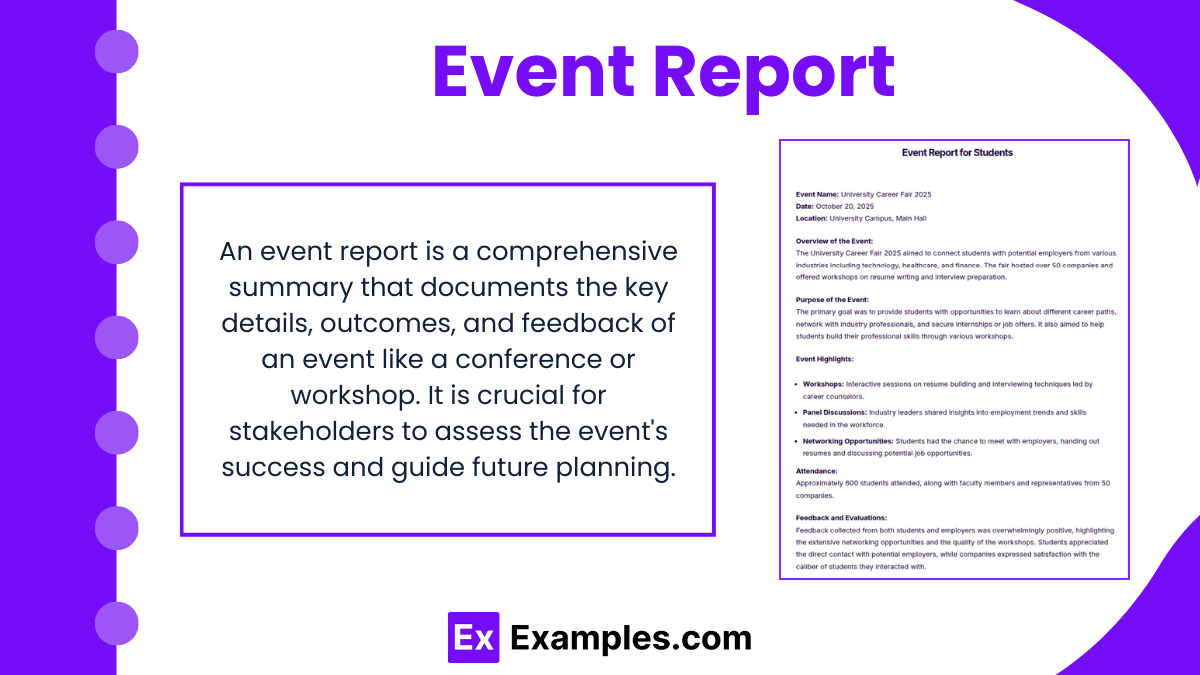9+ Event Report Examples to Download
An event report is a detailed summary that captures all the key aspects of an event, such as a conference, seminar, or workshop. It serves as an essential document for stakeholders who want to understand the outcomes, attendance, and overall success of the event. This report not only highlights what occurred but also includes insights and feedback that can be pivotal for planning future events. Creating an effective event report involves gathering data, noting down significant interactions, and providing a clear analysis of the event’s impact. Whether you’re an event organizer, a participant, or a sponsor, understanding how to craft a thorough and accessible event report is crucial for leveraging the most value from any event.
What is Event Report?
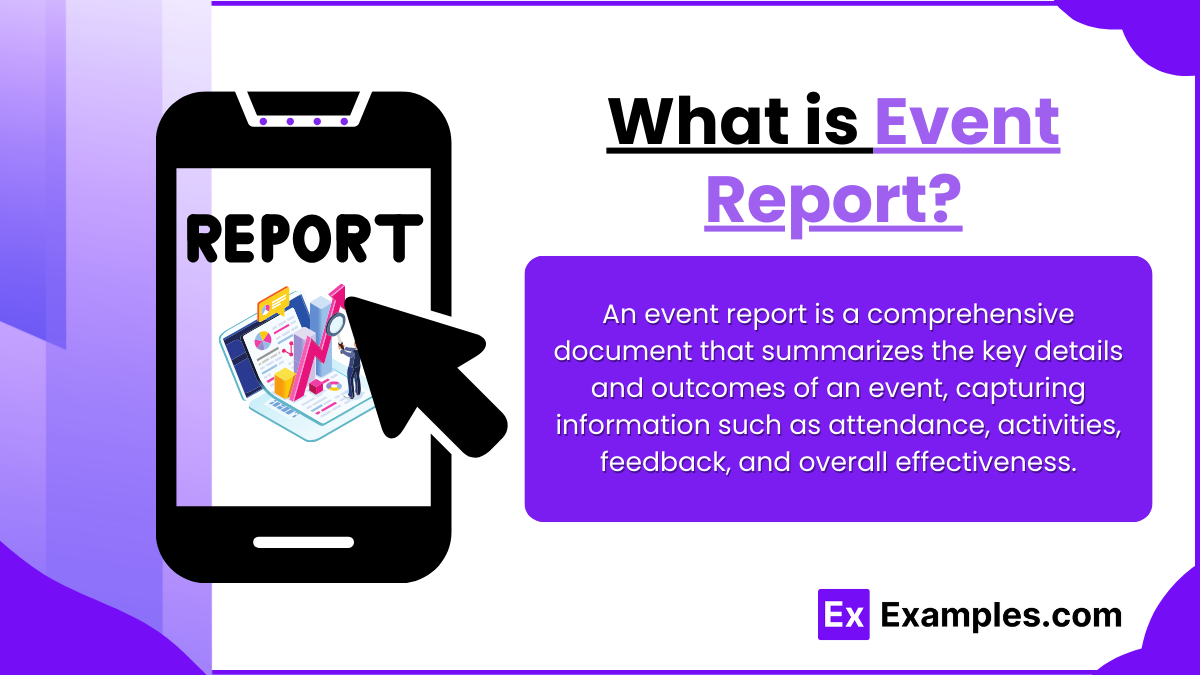
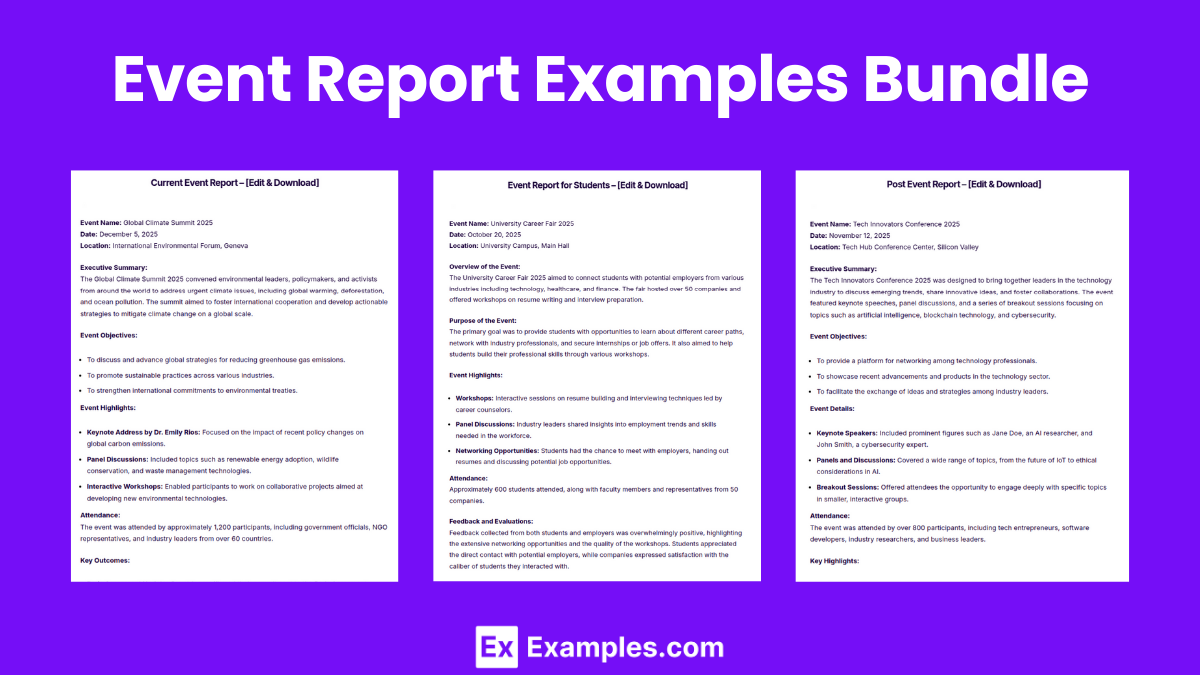
Event Report Format
Title Page
Include the event’s name, date, and location.
Executive Summary
Provide a brief overview of the event, including the main outcomes and a summary of what the report will cover.
Introduction
Detail the purpose and objectives of the event.
Event Overview
Describe the event’s schedule, key speakers, and activities.
Attendance
List the number of attendees and any notable participants.
Key Highlights
Discuss the major highlights and milestones of the event.
Challenges and Improvements
Identify any challenges faced during the event and suggest improvements for future events.
Feedback and Evaluations
Summarize the feedback received from participants and stakeholders.
Financial Overview
Provide a detailed account of the event’s budget and expenditure.
Conclusion
Offer a final summary of the event’s success and its impact.
Appendices
Include any additional documents or data, such as detailed feedback forms, photographs, or presentations.
Event Report Example
Events Report Examples
Event Report for Students
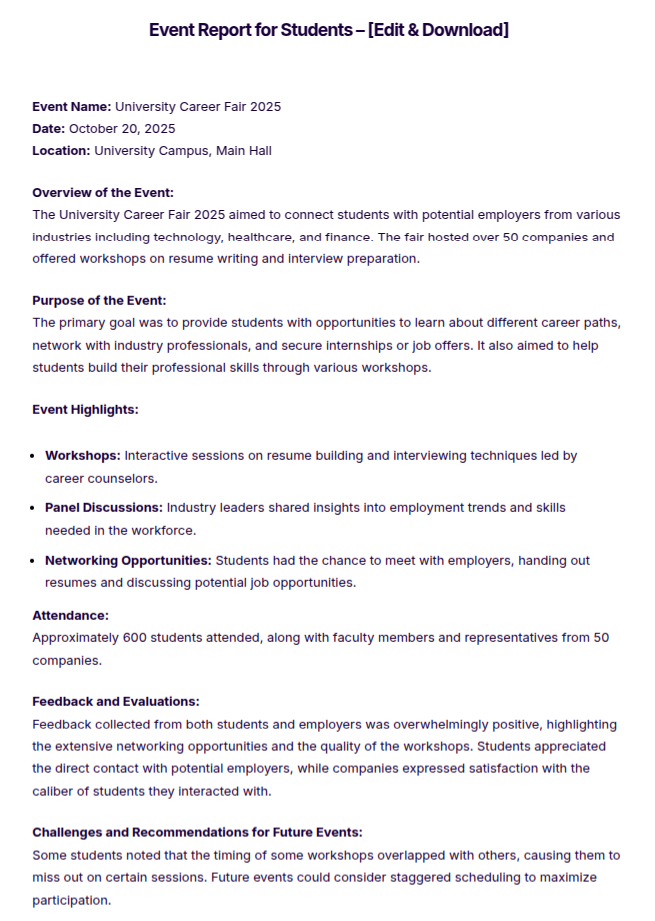
Post Event Report
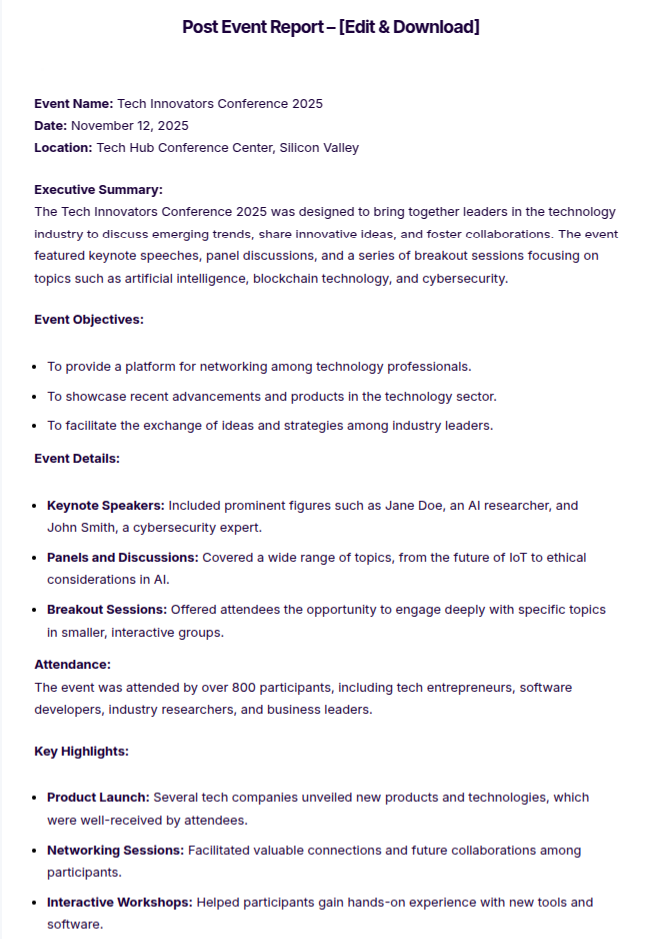
Current Event Report
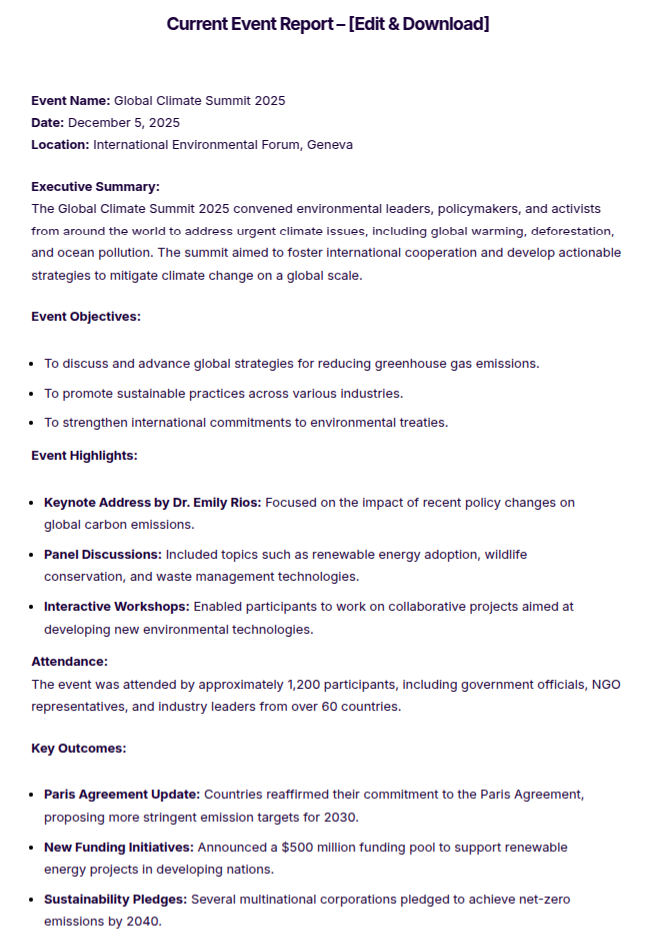
More Examples on Event Report
- Safety Event Report
- Sentinel Event Report
- Simple Event Report
- College Event Report
- Sentry Mode Event Report
Adverse Event Report Form
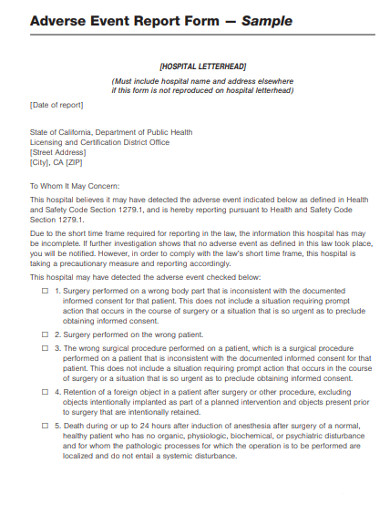
Upcoming Events Report
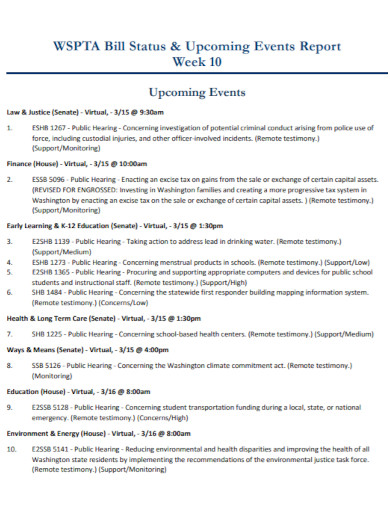
How to Write an Event Report
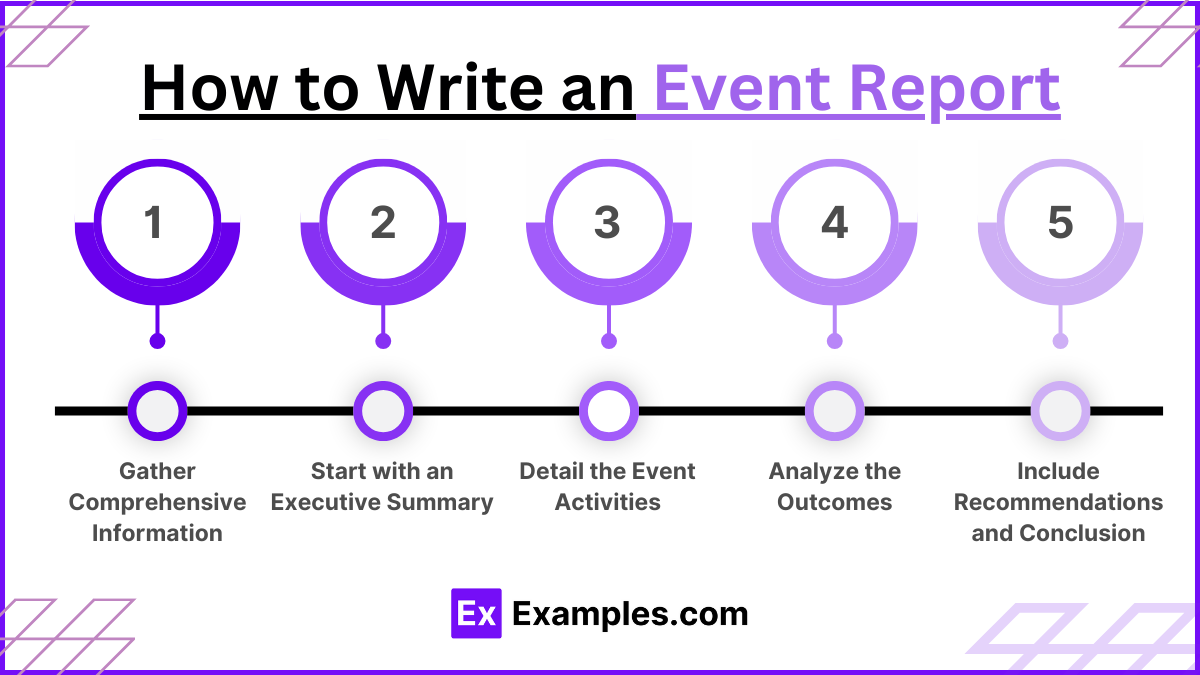
- Gather Comprehensive Information: Collect all relevant data from the event, including attendee numbers, feedback, speaker notes, and financial details. Use photographs, video recordings, and session recordings to enhance the accuracy of your report.
- Start with an Executive Summary: Begin your report with an executive summary that provides a concise overview of the event’s purpose, key outcomes, and major findings. This section should give readers a clear understanding of what the event achieved and why it was significant.
- Detail the Event Activities: Provide a chronological breakdown of the event’s schedule. Describe the sessions, workshops, and any keynote speeches, including the topics covered and the speakers involved. Mention any networking sessions and their outcomes.
- Analyze the Outcomes: Evaluate the success of the event against its objectives. Discuss the feedback received from participants and highlight any particular successes or areas for improvement. Include quantitative and qualitative data to support your analysis.
- Include Recommendations and Conclusion: Offer practical recommendations based on the event’s outcomes and feedback. Suggest improvements for future events and conclude with a summary of how the event has contributed to the broader goals of the organization or community.
How to Create an Event Report
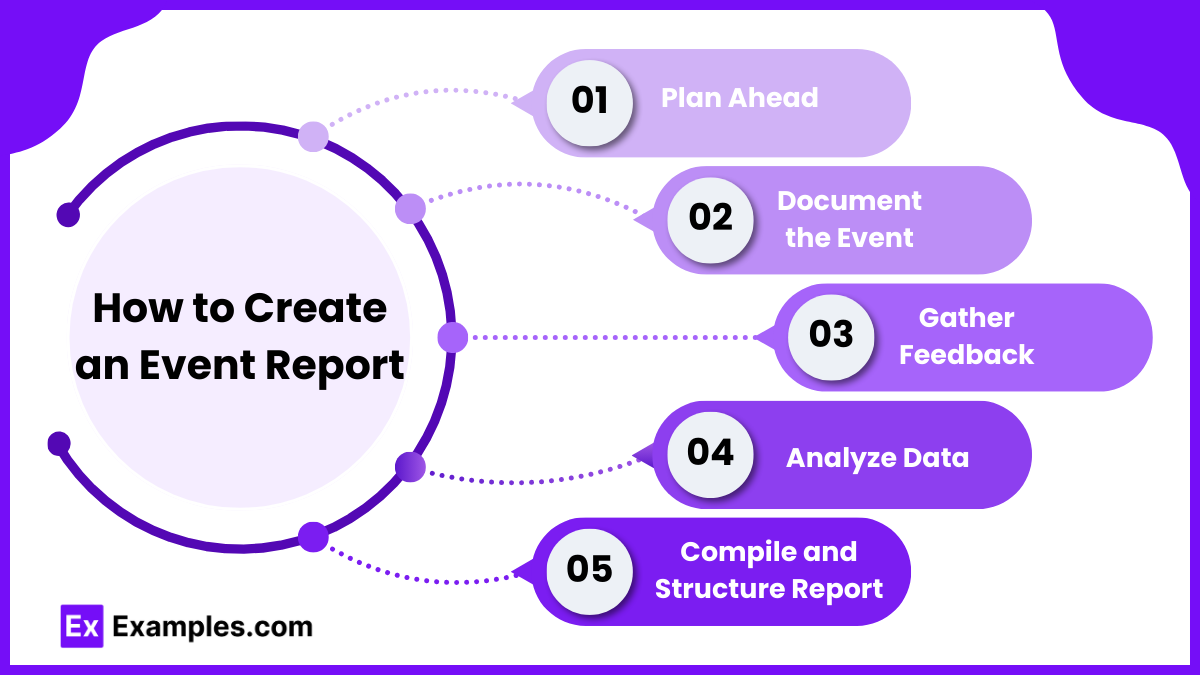
- Plan Ahead: Before the event, determine what information you need to capture, such as attendee numbers, feedback, and key moments. Prepare tools and methods to collect this data efficiently.
- Document the Event: During the event, take detailed notes and use checklists to track activities, times, speakers, and audience engagement. Capture photos or videos if applicable.
- Gather Feedback: Use surveys or informal interviews to collect feedback from participants and staff. This will provide insights into the event’s impact and areas for improvement.
- Analyze Data: After the event, review all collected information to evaluate the event’s success against its objectives. Look for trends in feedback to identify strengths and weaknesses.
- Compile and Structure Report: Organize your findings into a clear, logical structure. Include an introduction, a detailed description of the event, analysis of outcomes, feedback summary, and recommendations for future events.
Tips for Writing Event Report
- Start Early: Begin documenting details during the planning stages and continue throughout the event to ensure all critical information is captured.
- Be Objective: Provide a balanced report by discussing both the successes and areas that need improvement. Avoid bias by presenting facts and diverse perspectives.
- Use Clear and Concise Language: Write in a straightforward manner to ensure the report is easily understandable by anyone who reads it, regardless of their familiarity with the event.
- Incorporate Visuals: Enhance the report with charts, graphs, photos, and videos that provide visual evidence of the event’s activities and atmosphere.
- Provide Actionable Recommendations: Conclude with clear, practical recommendations based on the event outcomes and feedback. This helps in planning future events and shows a proactive approach to continuous improvement.
FAQs
Who should write an event report?
Typically, event organizers or designated team members responsible for event management and analysis should write the event report.
What should be included in an event report?
Include the event’s purpose, activities, attendance, key outcomes, participant feedback, and recommendations for future events.
Why is an event report important?
Event reports provide valuable insights for improving future events, ensuring accountability, and documenting successes and challenges.
How long should an event report be?
The length of an event report can vary, but it should be concise while thoroughly covering all essential aspects of the event.
When should an event report be submitted?
An event report should be submitted shortly after the event concludes to ensure the information is timely and actionable.


